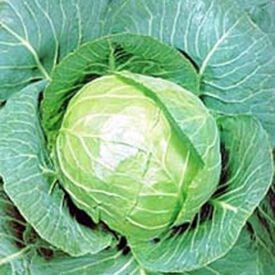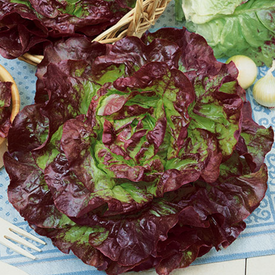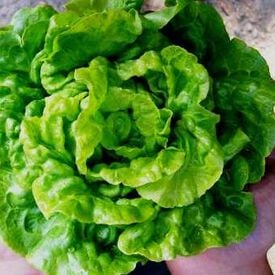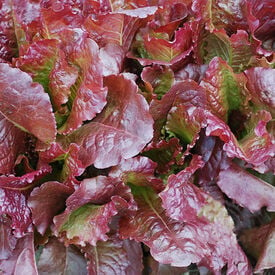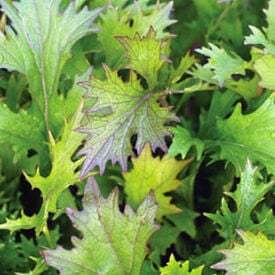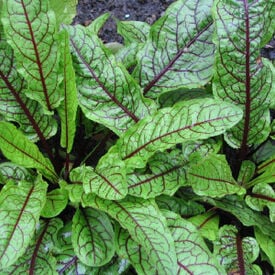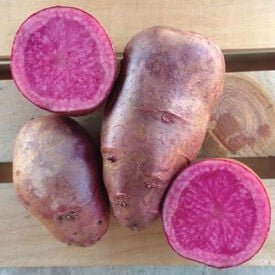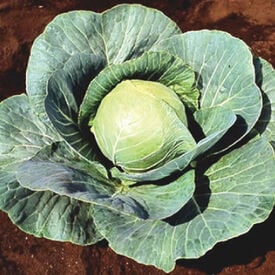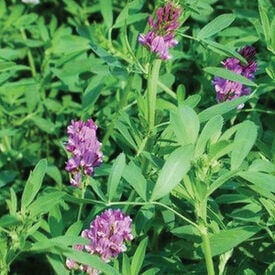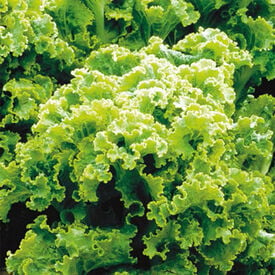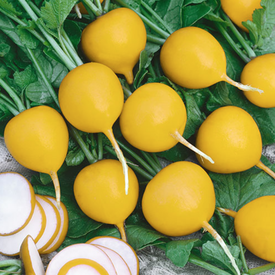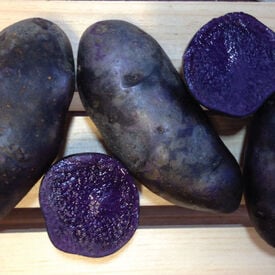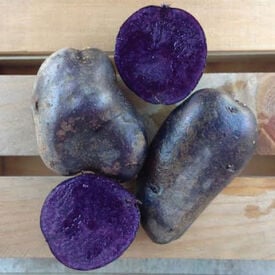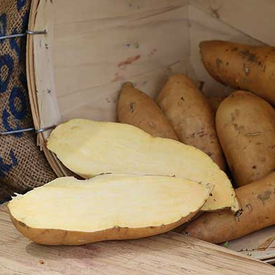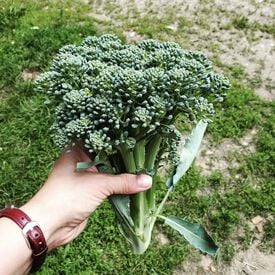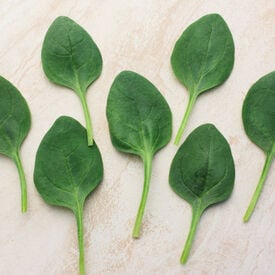Yes, these mouth watering fruits are real! White Alpines are white, ornately speckled with red seeds. The unique pineapple flavor and aroma more than make up for the small, bite-size fruits. Easily could be a kid's favorite mini-berry to pick and snack. Once you try one of these mouth watering fruits you will have them in your garden for years to come!
This refined, open-pollinated cabbage produces round, green heads wrapped around crisp, tender white hearts and has been a trusted favorite since at least the 1920s. Known for its very early maturity and compact growth habit, it is ideal for dense plantings and tight spacing while still delivering strong yields of uniform, marketable heads. The dense, solid heads are spherical, typically measuring 5–7 inches across and weighing about 3–5 pounds, with plants remaining relatively small compared to head size. Fresh, the flavor is delicately crunchy with a pleasant bite, while cooking mellows it to a rich, buttery taste. Well suited for coleslaw, stir-fries, and other fresh kitchen uses, this variety shines as an early fresh-market cabbage rather than a long-term storage type. Maturing in about 65 days, it is an excellent choice for serious cabbage growers seeking high quality and reliability.
Carmona Red is a favorite among many market growers! This lettuce variety produces big, bright red heads with lime green hearts. The Carmona Red has a nice silky texture and is very disease resistance.
The Tom Thumb Lettuce is a tennis ball sized Bibb type with a great flavor! This slightly savory, bright green lettuce produces small compact heads that have slightly crumpled leaves with a sweet, delicate flavor. One head will make a salad for two! Tom Thumb will grow beautifully in small pots, window boxes, hanging baskets and planted under trees. This variety is the oldest American lettuce still grown, dating back to 1830's! This rare find is a good one!
The Outredegeous Lettuce is a deep, dark purple red romaine that will maintain its dark color even under low-light conditions! This mesmerizing variety is a wonderful baby leaf type and large loose leaf type, making it the perfect lettuce for salad growers. You can start using its leaves after 28 days. Outredegeous seeds are a natural mix of black and white.
The Mizuna Purple Mustard produces bright purple tinged and sharply serrated green leaves. This is a tasty variety that is fast maturing and slow bolting.
The Red Veined Sorrel is a delicate green with an excellent flavor! This Red Veined Sorrel is a fast growing green that adds a delicious flavor and texture to salads. This green's leaves are best young with a sharp tart flavor that is unique to this plant. The central vein is a dark maroon that webs out throughout the leaf. This variety has very showy leaves that is great for salads, soups, stews and more.
SPRING SHIPPING - Certified - The Adirondack Red Potato has a beautiful red outside and a red inside! This variety is a delicious tasting potato that makes just about any meal pop with red colored mashed potatoes. The Adirondack Red has a creamy texture with fine potato flavor!
Early maturing cabbage with tight heads! Stonehead is a fast grower with 6" heads that average between 4-6 lbs. when mature. Good texture and flavor. This hybrid resist yellow and black rot very well. A great market variety that matures early, won't split and holds well after harvest. Grows well throughout the United States. An All American Selection winner in 1969.
The Common Alfalfa is a somewhat winter hardy perennial legume, but it grows more quickly than other regular alfalfa varieties. As an annual green manure, this cool-season "Summer" alfalfa can produce up to 10 tons of organic matter per acre. Its long taproots break up compacted soil and bring up subsurface minerals. High nitrogen fixation and great bee forage. Alfalfa is basically good at everything, as it great for nitrogen fixation and bee forage! Just look at all it's uses below! Alfalfa (Medicago sativa L.): Cool season, broadleaf, Perennial, Legume (N-fixation), Upright plant growth, Crude protein: hay or silage 14-22% Uses: Bees & Beneficial Insects, Chicken Forage, Compaction Control, Deer Attractant, Erosion Control, Forage, Green Manure, Nitrogen Fixation, Nitrogen Scavenger, No Till, Organic Matter (Biomass), Weed Suppression
Green Ice is a crispy loose-leaf lettuce that does well in hot weather! This variety produces an abundance of crunchy loose leaves. Green Ice's leaves are curled with deep green color. This lettuce is ready in just 45 days, it is among the earliest, yet will last well into summer thanks to its superior heat tolerance. Green Ice is one loose-leaf that just won't bolt!
The Golden Helios Radish is named after the Greek god of the sun. This olive-shaped radish is bright yellow with a crispy white flesh and is truly one of the most beautiful radish! Not only is Helios a beauty, it is also tasty with a sweet and mild flavor.
SPRING SHIPPING - Certified - The Magic Molly is a purple-skinned fingerling potato with a unique dark purple flesh! This potato variety produces larger than normal fingerling-shaped tubers with dark purple skin and solid dark purple flesh that retains its color even when boiled. Magic Molly's tubers have an excellent flavor, especially when roasted!
SPRING SHIPPING - Certified - The Adirondack Blue potato will brighten up your meals with this tasty blueish-purple potato! With its deep blueish skin and flesh that almost appears purple, this potato is sure to brighten up your table and your favorite potato salad! The Adirondack Blue is a family favorite for making awesome colorful french fries or mashed potatoes. This potato produces abundant yields of medium sized oblong tubers.
Certified - The O'Henry is a unique looking white-skinned and cream-fleshed sweet potato variety with a deliciously delicate sweet flavor. This different looking sweet potato might look more like a potato than sweet potato, but its yummy sweet flavor is all sweet potato! O'Henry cooks drier than other sweet potatoes making it the perfect baking or frying sweet potato.
Waltham 29 broccoli seeds produce a classic, open-pollinated variety that was developed in the early 20th century by the University of Massachusetts at Waltham and has remained a trusted garden standard ever since. This variety forms large, deep blue-green central heads measuring 6–8" across on sturdy, cold-tolerant plants that typically reach 20–24" tall. Known for its reliability and adaptability, Waltham 29 performs especially well in cooler temperatures and is valued for its uniform growth and strong side-shoot production after the main head is harvested, resulting in generous yields over an extended period. It matures in about 74–85 days from transplant, making it well suited for spring and fall planting. The tightly packed florets have a tender texture and mild, slightly sweet flavor, excellent for fresh eating, steaming, freezing, and a wide range of culinary uses.
Lakeside smooth leaf spinach with dark green leaves. It has a round to oval leaf shape with an upright plant habit that makes it easy to harvest. It is a very versatile variety it can be used for baby leaf, bunch or clip.
The Jerry Oats is a grain that is a quick growing green manure that will kill off any winter weeds and will hold soil with a mat of vegetation! This high yielding oat can produce over 100 bushels per acre. This grain variety is great for garlic beds and other vegetables. The oats stay green into November and form a mulched bed for spring planting. The Jerry Oats are also great for underseeding with a legume. Uses: Erosion prevention, Green Manure, Nitrogen Scavenger, No Till, Organic Matter, Weed Suppresion

